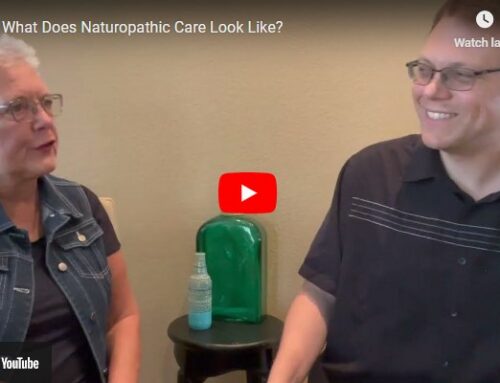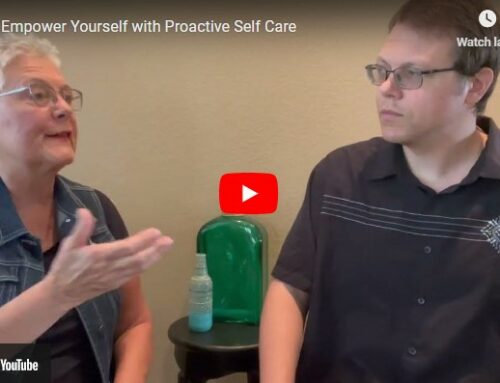It’s important to treat the whole person, not just the symptoms that a patient may be having. Dr. Marcantel explains why it’s important for patients to avoid being put into a “diagnosis bucket” so they don’t start to identify with their symptoms. Dr. Tina Marcantel is a naturopathic doctor in Gilbert, AZ, who also serves the East Valley cities of Chandler, Mesa, Tempe, Scottsdale, Queen Creek, Apache Junction, and the greater Phoenix area.
Transcript:
If a person comes into my clinic and they’re depressed and just really not feeling good–difficulty getting up in the morning–I will prescribe an antidepressant. I have nothing against that, but I’m going to try to figure out why they’re depressed.
What are they depleted of or what do they have too much of? What is going on–is it maybe chemistry or hormones or is there something going on in their lifestyle? Or is it stress–stress is a big factor, it will drain us of our energy and thus affect our hormones and our neurotransmitters, as well.
What does this particular patient need at this particular time in their life? This is important. If we need to prescribe an antidepressant, for instance, or we’ve got to get the blood pressure down because it’s really high I will prescribe an antihypertensive. I have no problem with that. Thank goodness we have these things; but, again, let’s find out what’s going on with them that is causing this.
A lot of times people are put into what I say is a “diagnosis bucket.” The diagnosis bucket is really symptomology. For instance, things like ADD, ADHD, chronic fatigue syndrome, fibromyalgia–all of these things are really symptoms of things, but because we’re in medicine we have to label things. So I have people that will come in and they’ll say, “I’m chronic fatigue syndrome.” And they become identified with, “I’m ADHD” and all this stuff. The identification process. And I make them aware not to identify with that. That’s not who you are. These are a host of symptoms that we have to look to get to the root cause of why is that happening.
Is it your thyroid gland that’s causing some of these symptoms? Is it a poor ratio of estrogen to progesterone? Is it a lot of stress in your life so your adrenal glands are no longer producing as much cortisol that you need to handle the stress?
I’m very thankful that I can prescribe medication to help people along their path until we can get to the root cause and maybe use other things to help them. For instance homeopathy, acupuncture, botanicals, a change of lifestyle, counseling in how to decrease and manage stress. So I’m really glad that we can combine the best of both worlds [alternative and conventional treatments] for that individual at that particular time in their life.





